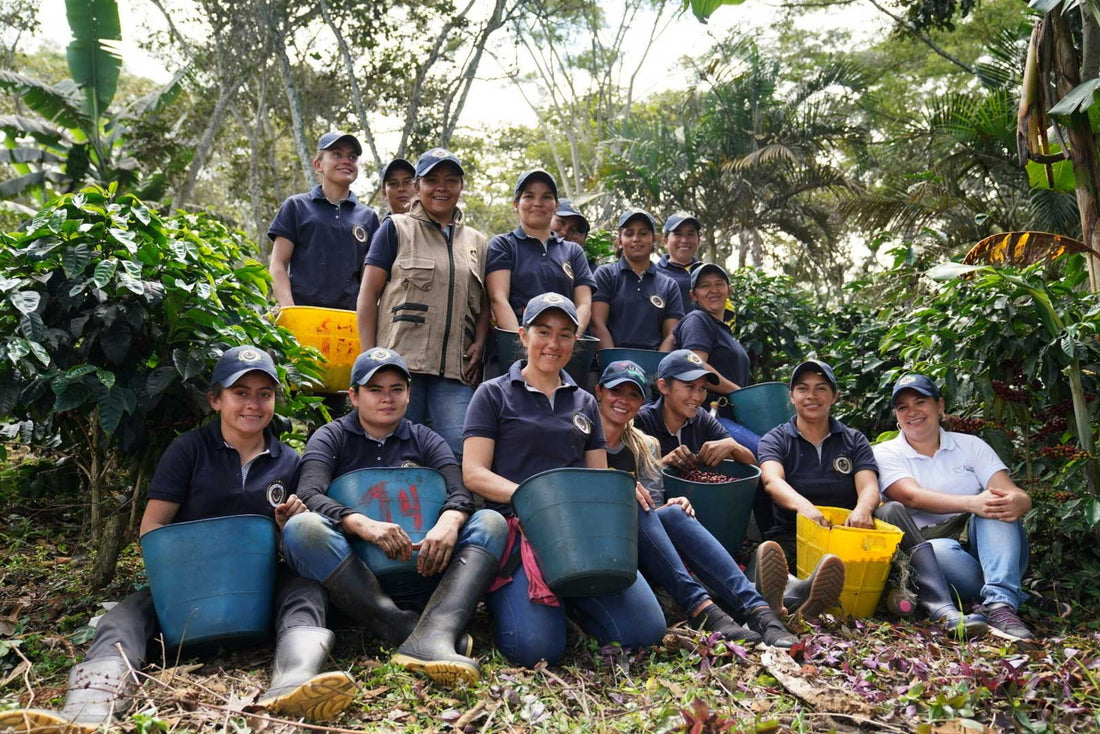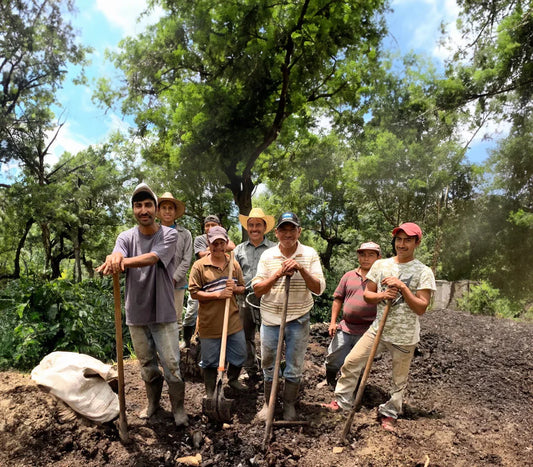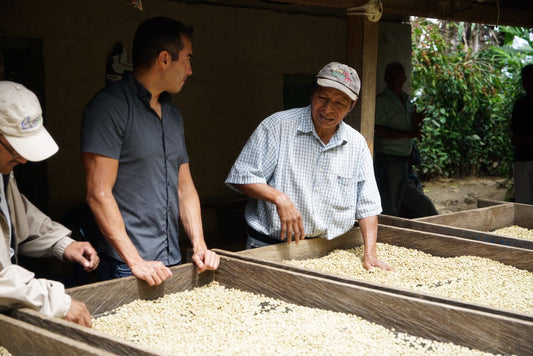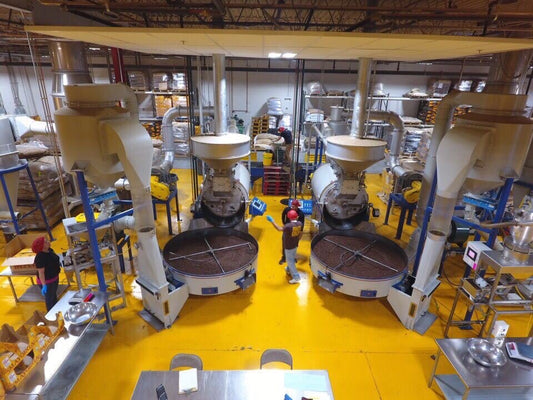
Women in Coffee – Breaking Through Gender Misconceptions
It's not every day that you find a coffee cooperative owned and run by women.
Allow us to introduce Finca Santa María, a coffee cooperative in Aratoca, Colombia. It is run by Mildred Muñoz.
Jump to:
On the outside, the farm resembles the day-to-day operations of most specialty-grade coffee producers. However, the driving factor in the farm's success isn't its superior coffee cultivation or unique microclimate. The key to Santa María's prosperity is its completely female farming team's revitalizing effect on gender misconceptions locally and across the coffee industry as a whole.
"We're a group of 32 women working here at Santa María, working at every level of production year-round. As a woman working in the coffee industry, it has helped me become independent and believe in myself. Because there are a lot of times when one does not believe in oneself, and this work has helped me confirm that we can do it, that we can also do a job that was traditionally only for men," says Alba Bueno, a Team Manager at Finca Santa María.
The Finca Santa María spirit is a beacon of light in an industry that has conventionally accepted gender inequity as the norm. In general, women have been excluded from coffee farm management. On the rare occasion when women are welcomed into operational roles, there are gross disparities in pay, ownership, and authority.
Disparity In the Coffee Industry's Gender Representation
Women support the coffee industry at all levels of the global supply chain, yet men have conventionally held most of the leadership responsibility. According to the International Trade Center, women in coffee production provide 70% of the labor yet they share only 20-30% of the leadership responsibility.

Gender equality doesn't increase past the production stage either. Women hold only 10-20% of the jobs at higher-paying levels of coffee trading, such as export and sales. As coffee moves away from the farm, the more women's impact on the coffee industry shrinks.
Beatriz Garay became Mayorga Organic's Director of Food Safety & Compliance nearly three years ago. She quickly realized that outside of Mayorga, the lack of female representation in leadership was frightening.
"When I was studying to get my q grader (a kind of certification to grade the quality of coffee), I was the only woman and also I was the only Hispanic woman in my group of 30 male students. In the beginning, I was so intimidated," she says.
In the coffee industry, gender inequity's costs go far past moral atrophy. Gender inequality has damaging consequences on overall industry sustainability.
Studies show that when women are absent from leadership roles, financial performance, innovation, and knowledge diversity decline, and undesirables like employee dissatisfaction, risk, and even environmental infractions rise.
Santa María's founder, Mildred Muñoz, believes improving gender equality in coffee begins by highlighting women's work across the supply chain.

"These examples of women's improvement and equality motivate our group of women in Santa María to train ourselves every day to achieve our goals because we see that there are opportunities and participation for us women," said Muñoz.
Women in Coffee: the Struggle and Progress
Muñoz has seen first-hand that one of the most significant contributions women bring to coffee farming is the special attention they pay to the health of their local communities and environments. As a result, taking better care of the land through organic farming is a top priority for Finca Santa María.
"We women promote sustainable development, based on the respect for the environment, since our production is organic, allowing the biodiversity of flora and fauna," said Muñoz. "Our crop, being certified organic, produces a better-quality product, which generates higher income, and this helps the social development of the whole community."
Wendi Harder, Mayorga's Customer Experience Manager, sees humanizing coffee production as the key to increasing gender parity in the industry.
"When you forget the humans connected to coffee, the role women play is downplayed a little bit. It's not just transactions. It's not just a spreadsheet. That's something that we (Mayorga) do well, putting the human aspect back in it," said Harder.
Although representation is only a fraction of what it should be, women are increasing overall industry sustainability through conscientious innovation.
Unfortunately, there are still many barriers preventing women's access to leadership positions in the industry. The global nature of coffee creates many obstacles to gender parity that shift depending on one's geographical perspective.
Despite the many hurdles facing advocates of gender equality, Muñoz believes the struggle is worth the reward.
"It's the daily fight but gratifying family environment, having to wake up early in the morning to prepare the food for the day, get the kids ready to go to school and returning home to help with school homework and house chores," Muñoz said. "Also having to go to work and face different weather conditions such as cold, heat, rain, and insects, but at the same time this is counteracted by the social living, laughs, singing, and stories that make the daily living happy."



